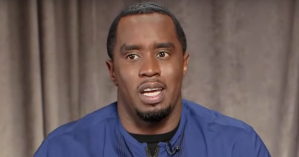ABC’s sophomore medical drama, The Good Doctor is one of the few series on primetime television that not only boasts a diverse cast, but also spotlights an autistic character with savant-syndrome. But while the show is beloved and a steady ratings darling, its portrayal by actor Freddie Highmore has critics sounding off that the series misrepresents the experience of autism — something series star, Tamlyn Tomita takes seriously.
While grateful for seeing the “rainbow of colors” represented in the cast, Tomita, an outspoken advocate for persons and issues she firmly believes in, tells PopCulture.com she understands how fans are not taking kindly to the idea of how a person with autism is not playing lead, Dr. Shaun Murphy.
Videos by PopCulture.com
“I fully take in their opinions because they’re valid, and they’re coming from a place of knowledge and true and authentic experience,” Tomita told PopCulture.com. “And I think the writers in the room do take those considerations seriously.”
Tomita, who plays Allegra Aoki, chairperson and VP of the foundation that controls St. Bonaventure Hospital, goes on to assure viewers that Highmore has the utmost respect for his role.

“I will fight to the death to say that Freddie Highmore tries to portray an autistic individual as authentically as possible — that man works hard every day, every single episode, every scene, in trying to make sure he brings something grounded, something very human, and something that he doesn’t pull out of his bag of tricks,” she said. “He tries to make it new and challenging for himself as an individual with autism, but the fact is it’s an individual.”
Tomita sees the show as a great step toward increasing understanding and acceptance, and urges critics to give the show a “little bit more time.”
“The writers are very conscientious. We’ve had an individual who has autism, we’ve had actors who have autistics in their families, so they’re coming from a place of experience, as well,” Tomita added. “So, it’s in the air, it’s in the room, it’s in their minds, and it is in their hearts that autism needs to be portrayed with as much realism and authenticity as possible.”
Tomita hopes that the show sparks some interest in making a valid argument for film and television to include people of color, disabilities and those that are “simply different.”
“We look at each other, [and we’re] all the same,” she said. “[If] we just really value each other’s gifts as well as weaknesses, we can all help each other get better.”
Since her breakout roles in The Karate Kid II and The Joy Luck Club, Tomita has taken a firm stance in constantly pushing for diversity, representation and breaking down stereotypes. With 2018 being the banner year for those very pillars of inclusivity in the Asian community thanks to Crazy, Rich Asians and stars like Awkwafina, Tomita says it’s a decent start.
“It’s going to be a long process because in TV and cinema, storytelling through TV and cinema have been around for over a hundred years, especially film,” she said. “And it’s just, by virtue of the fact that it’s mostly dominated, of course, by white people.”
She adds that people around the world seem to think that’s what being an American is — “that they’re white people.”
“And that’s not a mistake [or an] evil, it’s just by virtue of the fact that people way back at the turn of the 20th century were white. [They] were in New York and Los Angeles, and were starting to make movies and storytelling,” Tomita told PopCulture.com, adding how history showed when foreigners started appearing in films, they were regarded as “exotic” and treated with “a suspicious and a wary eye.”
Tomita stresses the importance of executing “some kind of balance in our storytelling,” but that it will take a while to break down the stereotypes.
“I think the message with so much of the storytelling is that we come from different cultures [and] we all enjoy each other’s foods [and] respect each other’s cultures, but we’re also proud of our own, and we want to share that,” Tomita said, adding how it’s a message that resonates with The Good Doctor as well. “We all need to take care of each other. We all get ill, we all feel pain, we all get sick, and we all have to go to hospitals to figure out where our ailments are. And as people of color, and that includes white people, it’s like, ‘How do we take care of each other?’”
She further clarifies that more representation for people of color, “does not mean less representation for white folks.”
“We’re not taking away from all the stories that white people or persons of a Caucasian descent want to participate in,” Tomita affirmed. “It’s just widening the opportunities and widening the breadth of stories that are out there, it’s just making it more inclusive for everyone! And it doesn’t mean less than for those folks, it just means more… it’s so frustrating to try to get a very complicated message into a simple catchphrase. To say more representation doesn’t mean less representation for those who had it.”
Tomita says it’s a “long and complicated” journey to find balance, but it’s something she will continue to strive for.
“It’s something that I’m very passionate for, and it’s all about striking balance and seeing people as people.”
The Good Doctor airs Mondays at 10 p.m. ET on ABC.









